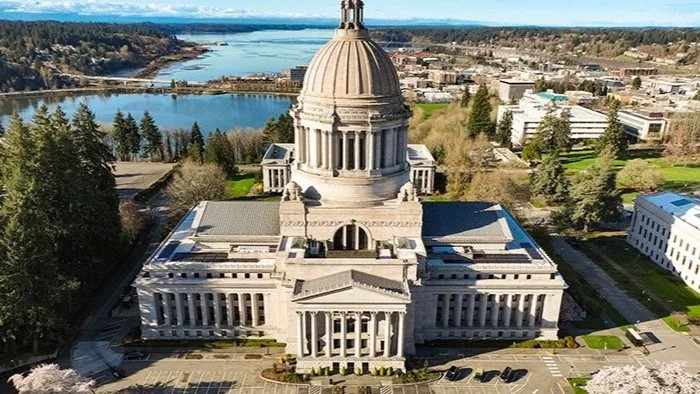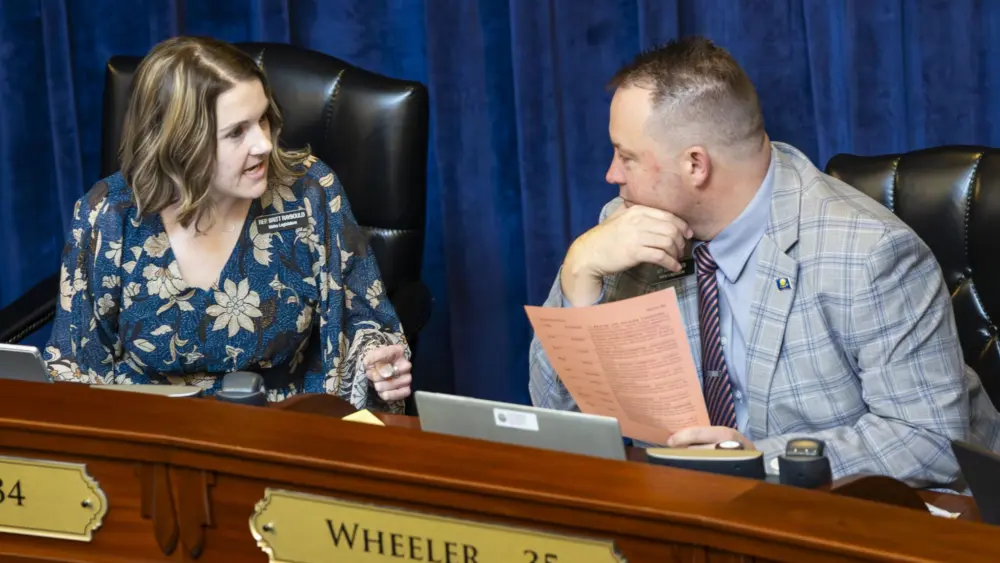OLYMPIA, WA – Washington is ranked the 45th worst overall state for tax competitiveness, according to the Tax Foundation’s 2026 Tax Competitiveness Index. The low ranking places the Evergreen State among the 10 least competitive states in the nation, largely due to its business and occupation tax structure, high sales tax on business inputs and recent tax increases.
The Washington, D.C.-based Tax Foundation evaluates how well each state structures its tax system to promote competitiveness and economic growth, rather than focusing on the amount of revenue collected. It ranks states on more than 150 variables across five major tax categories to provide a comparison and a road map for potential reforms.
Washington was the second-worst state in terms of decline in the Tax Foundation’s rankings over the last six years. Washington ranked 33rd in 2020.
Key findings for Washington in the study include:
Corporate taxes: The state was ranked No. 47 due to its B&O tax, a gross receipt tax imposed on revenue rather than profit, which leads to a good or service being taxed multiple times at different stages of the production and distribution process, with each successive tax becoming part of the final price.
Sales taxes: Washington was ranked No. 49, as the tax is applied to an unusual share of business inputs, including some digital products.
Individual income taxes: The Tax Foundation ranked Washington No. 31. Although the state has no general individual income tax on wages, the recent implementation of a 9.9% capital gains tax for high earners caused its ranking in this category to decline by two spots.
Unemployment insurance taxes: Washington was ranked No. 49, indicating a high and uncompetitive UI tax structure.
Property taxes: The state’s No. 25 ranking was a relatively average position compared to other states.
“Washington previously had no income tax at all, and its individual income tax rank bolstered its overall Index score,” the study, under the subheadline “Learning from the Bad,” says. “However, in 2022, the state instituted a tax on individual capital gains income over $278,000 (with a top bracket now raised to $1 million), which is now imposed at a rate of 9.9 percent after a recent increase. Without the help of a strong income tax score, the state’s other categories weighed down its overall rank, which quickly plummeted.”
The study also notes that Washington’s new sales taxes on digital advertising and other business purchases of digital products took effect in October, after the study’s snapshot date, and are expected to further negatively impact the state’s rank in future editions.
Washington faces a projected $2 billion funding gap in the 2026 supplemental budget due to slowing revenue growth combined with rapidly rising costs for state programs. That means state spending is expected to outpace tax collections over the next two budget cycles, which will necessitate difficult decisions for legislators next year.




